POC Lab advisory board – Magdalena Lindman
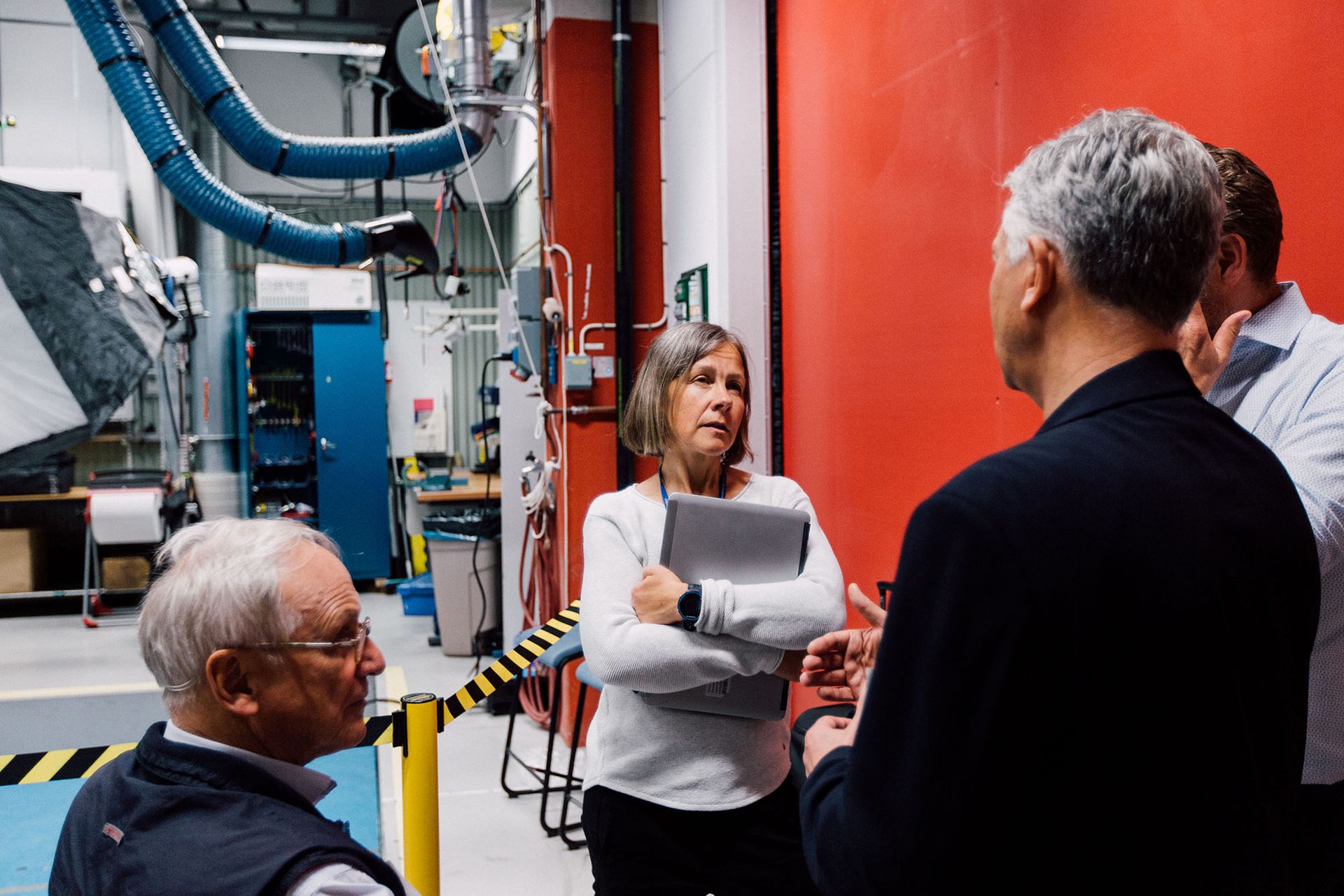
This article is part of our series featuring select members of the POC Lab, our scientific forum where we discuss new research ideas and ways we can innovate to enhance safety. The forum takes a holistic approach to safety and develops ideas and perspectives that may not have been previously considered.
Magdalena Lindman is a person of many talents. The leader of a team of traffic safety data experts at Volvo Cars, she is a mechanical engineer by training, with a professional knowledge of biomechanics and a detailed understanding of strategic approaches to safer environments.
Lindman is also a member of the POC Lab, an advisory board of unrivaled pedigree, in which she shares ideas and insights with internationally recognized medical experts and industry leaders. The most recent meeting was held at Volvo’s vast headquarters in Gothenburg, the site of its ground breaking collaboration with POC to test helmets in controlled crashes with cars.
Lindman describes Volvo’s motivation to build knowledge by expanding a regulatory procedure for head impact protection testing, with the main purpose to measure how a car would perform in collisions with pedestrians.
An impactor—simulating a head—adorned with a POC helmet is launched by a propulsion mechanism towards a car. Every measurable aspect: speed, angle, trajectory, acceleration, is tracked and carefully recorded.
The primary reason for creating the test rig and monitoring the collision of cars and bicycle helmets is to improve knowledge that leads to better safety. Only with detailed understanding of the nature of the collision, and the circumstances that might cause it, can both parties—POC and Volvo—create products better able to deal with its outcome. Lindman’s vast experience is no small advantage.
“I can’t guarantee that we’re the only ones doing this kind of work, but I think it’s unique. As you can imagine, testing bicycle helmets against cars is a little out of scope for a vehicle manufacturer!” Lindman says.
“I’m not an expert in the field of bicycle helmet testing. I don’t know much about the procedures available today. I hope and believe they reflect real world situations, but I believe that we can improve that by adding new speeds, new impact angles, new directions and trajectories. The project we have just started with POC will definitely help us to know more about helmet impact with motor vehicles.”
Lindman is clear that a sincere desire to improve road safety underlies Volvo’s work with POC (“Without that genuine motivation, we would not collaborate”) and believes that a focus upon the “true problem” is the only route to developing effective solutions.
These are not empty words, but a motivation derived from the complexity of accidents involving cyclists, revealed by real world crash data. The most striking of all, she confides, is that most cycling accidents do not involve motor vehicles.
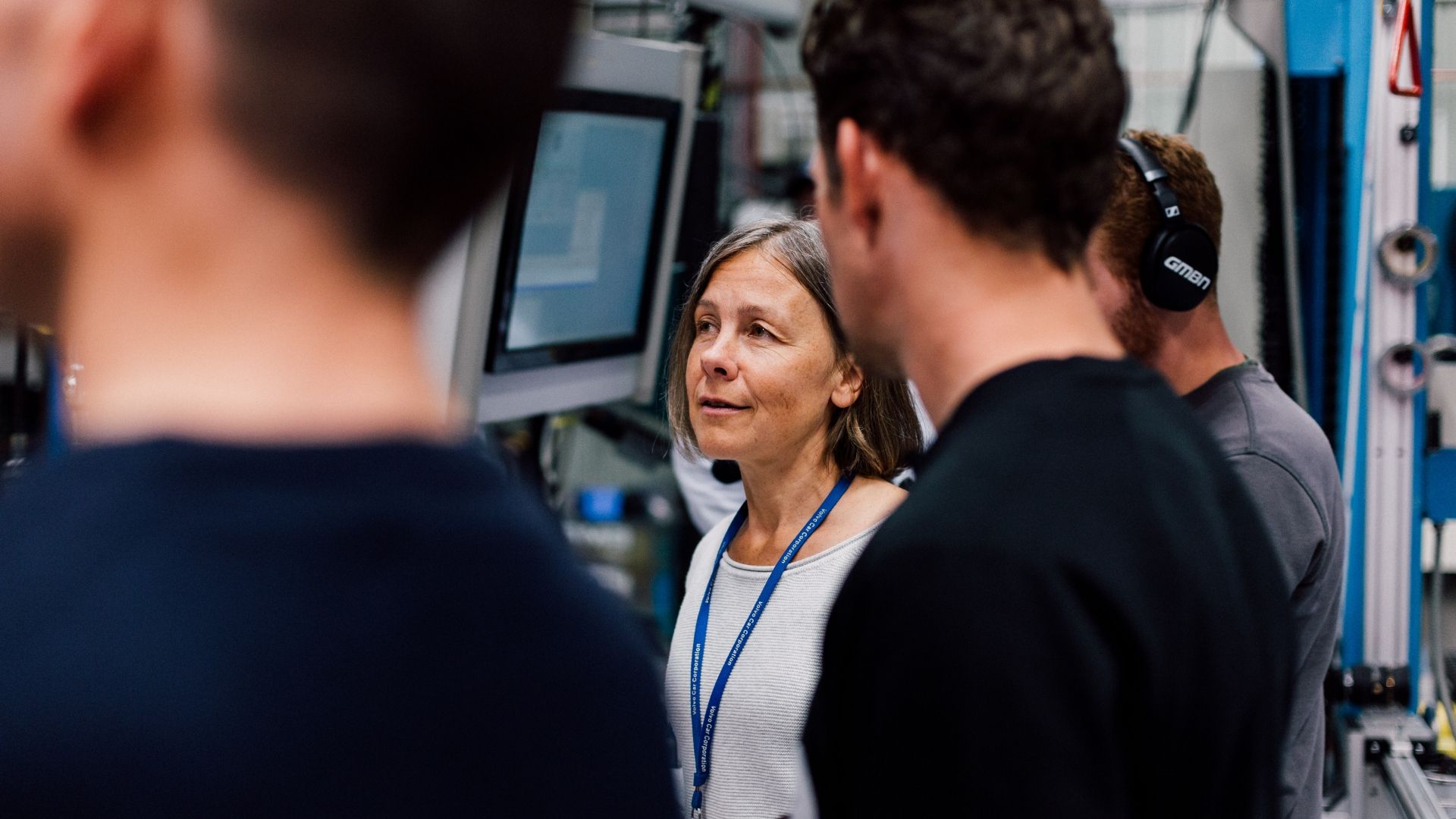
Magdalena Lindman, Technical Expert, Volvo Cars Safety Centre and member of POC Lab
“What I see from my data is that cyclist crashes are very complex. It’s only a very small percentage that take place against a motor vehicle. To really reduce traffic injuries for cyclists, we all need to support each other; for example, understanding crashes involving cyclists and other vulnerable road users,” she says.
“About 80 per cent of cyclist crashes involve a single cyclist. A huge percentage of those situations do not involve vehicles. Typically, they involve skidding, falling and other causes of injury. Many are cyclist-to-cyclist crashes, or cyclist-to-pedestrian. We have learned this from crash databases created at emergency hospitals. At Volvo Cars, my job is to analyze car-to-cyclist crashes, but this is important information that will help our product development as well as POC’s.”
She is an authority in a complex professional organization that strives to increase traffic safety by analysis of data derived from events that can often be life-changing and sometimes fatal. Her days are spent largely among statistics and acronyms, but she remains keenly aware of the human value of her work.
Lindman’s principal duty is to create strategies for traffic safety and to set targets that measure their effectiveness; to analyze symptoms and priorities, and never to overlook the fundamentally human nature of traffic. Behavior and psychology are as important to her work as speeds and trajectories.
“We need to have knowledge of humans, both as physical beings—the way you get into a car, for example—but also psychological; how people behave in traffic. It’s a combination of both that goes into the traffic data analysis and strategy setting,” she says.
Lindman has spent her entire career with Volvo Cars, joining its powertrain department as a university graduate, and describes her education as a mechanical engineer as an “enormous benefit” to her role in the data-driven world of analysis and strategy. She is clear on the connection between two seemingly disparate areas of such a vast company: her analyses, ultimately, drive product development.
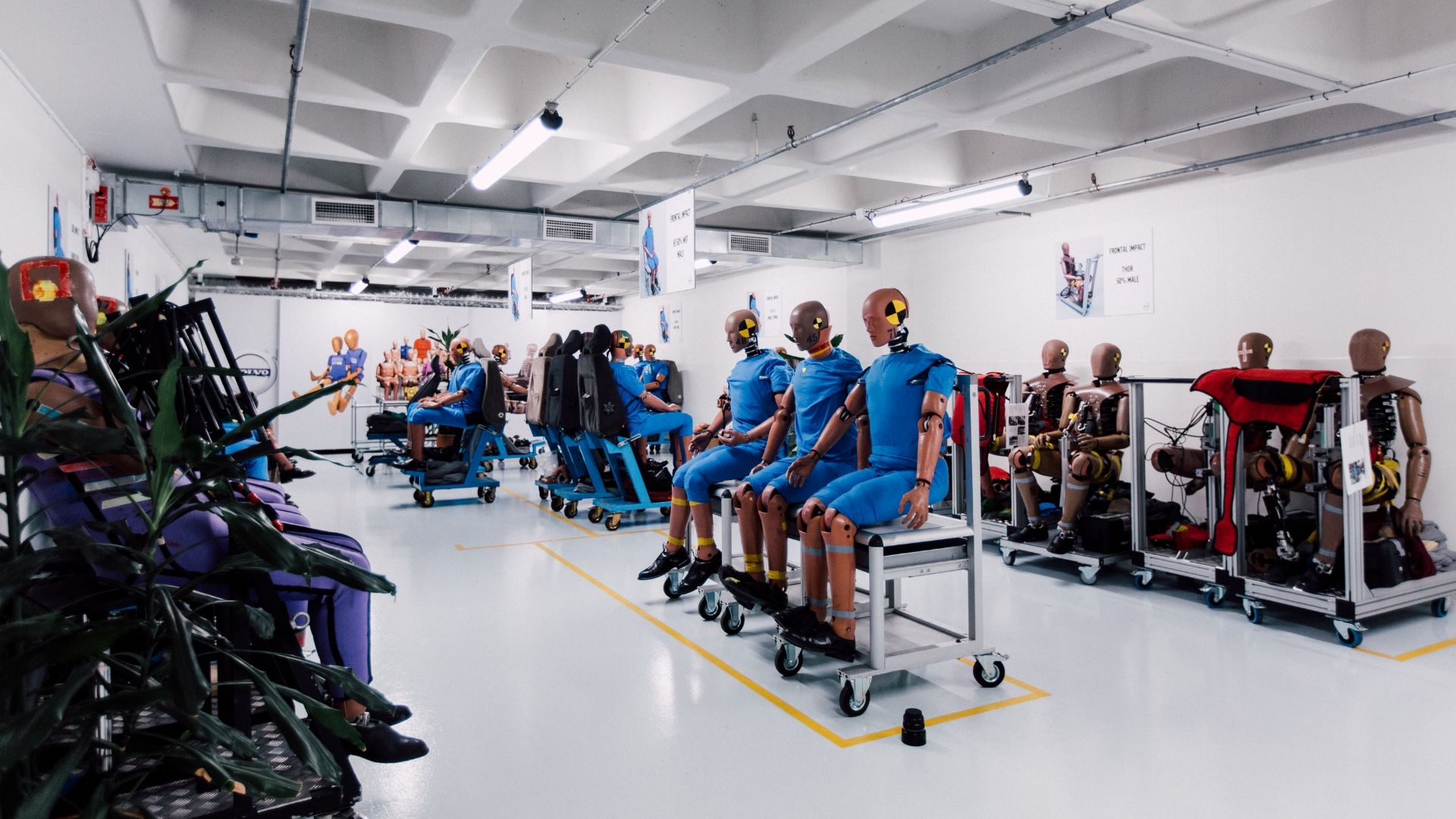
She has worked in the Volvo Cars Safety Centre since 2002 and acknowledges her professional inheritance, if it can be termed as such, within a manufacturer that has consistently placed safety at the front and center of its product development. It’s hard to imagine a better environment for her to pursue her analyses.
Volvo is not the only entity that shapes her work, which is, by its nature, collaborative and takes place at the center of a complex professional network of academia, government bodies and industry forums. Her data comes from Volvo Cars’ own crash surveys, a host of external sources, and from Volvo’s own test programs.
She accepts traffic safety is a challenge as it’s such a crowded setting, but one that all parties concerned with road safety are bought into resolving. Volvo, of course, has a fine history of sharing data from its own research.
Collaboration guides her work within Volvo, too. Her department works closely with those dedicated to product development and testing. Her team provides data that shapes innovation.
Our work is the basis for developing car safety. It’s where everything starts: the knowledge of what customers really need from car safety. We’re testing what would happen in reality.” Lindman says.
“I definitely feel like part of the Volvo culture. We have basic procedures that go back 50+ years. It’s encouraging to see how we can iterate and improve. When we create a new platform, we can follow-up and say we did the right thing. I’m just one of several generations. I’m just happy to contribute and make further developments. Our ways of testing and developing products is changing. It’s agile and facing forwards.”
Lindman’s entry to POC’s world came by happy coincidence, after Lindman spoke at a Volvo Cars presentation for partner organizations. A shared interest in safety and in snow sports—Lindman is a passionate Alpine skier—led to closer collaboration and membership of the POC Lab.
The forum has brought her into contact with others who share her passion for human safety and wellbeing. Dr Claes Hultling, an international authority on spinal cord injury, and Dr Per Hamid Ghatan, a neuroscientist working as a clinician and senior medical manager at Uppsala University Hospital, are some of the fellow Lab members who gain her insights.
“There’s very good interaction going on [in the POC Lab],” Lindman says. “I can provide a description of the problem, and I know a little bit of their areas. We can discuss the injury mechanism, where you can end up in this situation, what goes on in crashes, then they can provide all the details about the injury; what we should do in order to prevent specific injuries or outcomes. They understand physiology and anatomy and can draw conclusions.”
While POC is the chief beneficiary of such interactions, it’s probable that every member of the POC Lab can carry value from the Lab meetings into their professional lives. Certainly, Lindman’s knowledge and experience is of considerable value to POC, as well as to Volvo.
Related articles
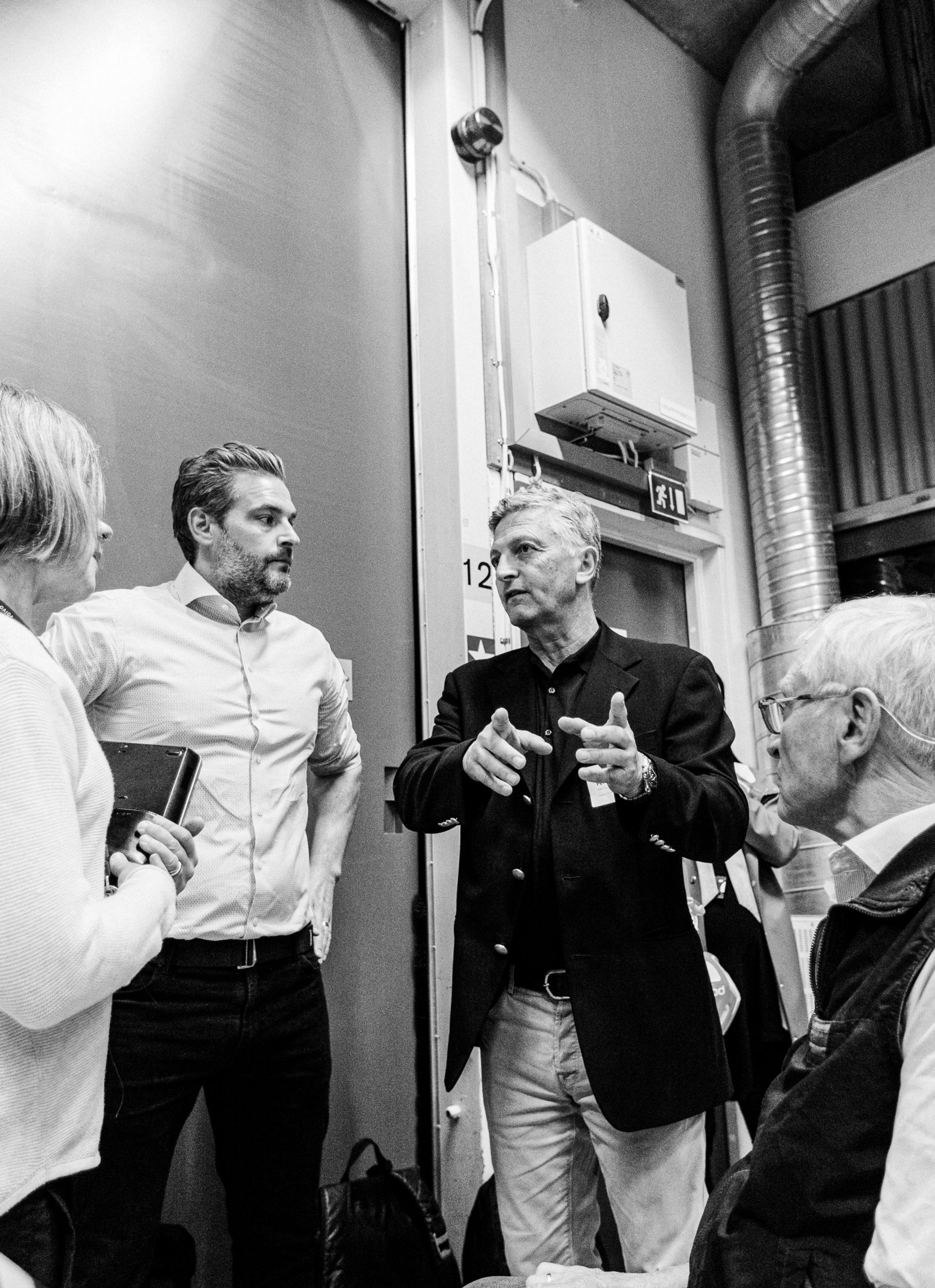
Great minds think together
It is not simply finished products that change people’s lives; rather it is the concepts and ideas that shape these products. It is only through having the freedom and the space to develop ideas that real change can happen. And often, a different perspective is vital before new solutions can materialize. Take, for example, how Superglue came to be: First developed to be used in the production of a gun sight, it was too strong and not fit for purpose, but nine years later with another perspective there was the Eureka moment, from which the world was introduced to a universal glue that has gone on to impact most people’s lives and led to countless imitations
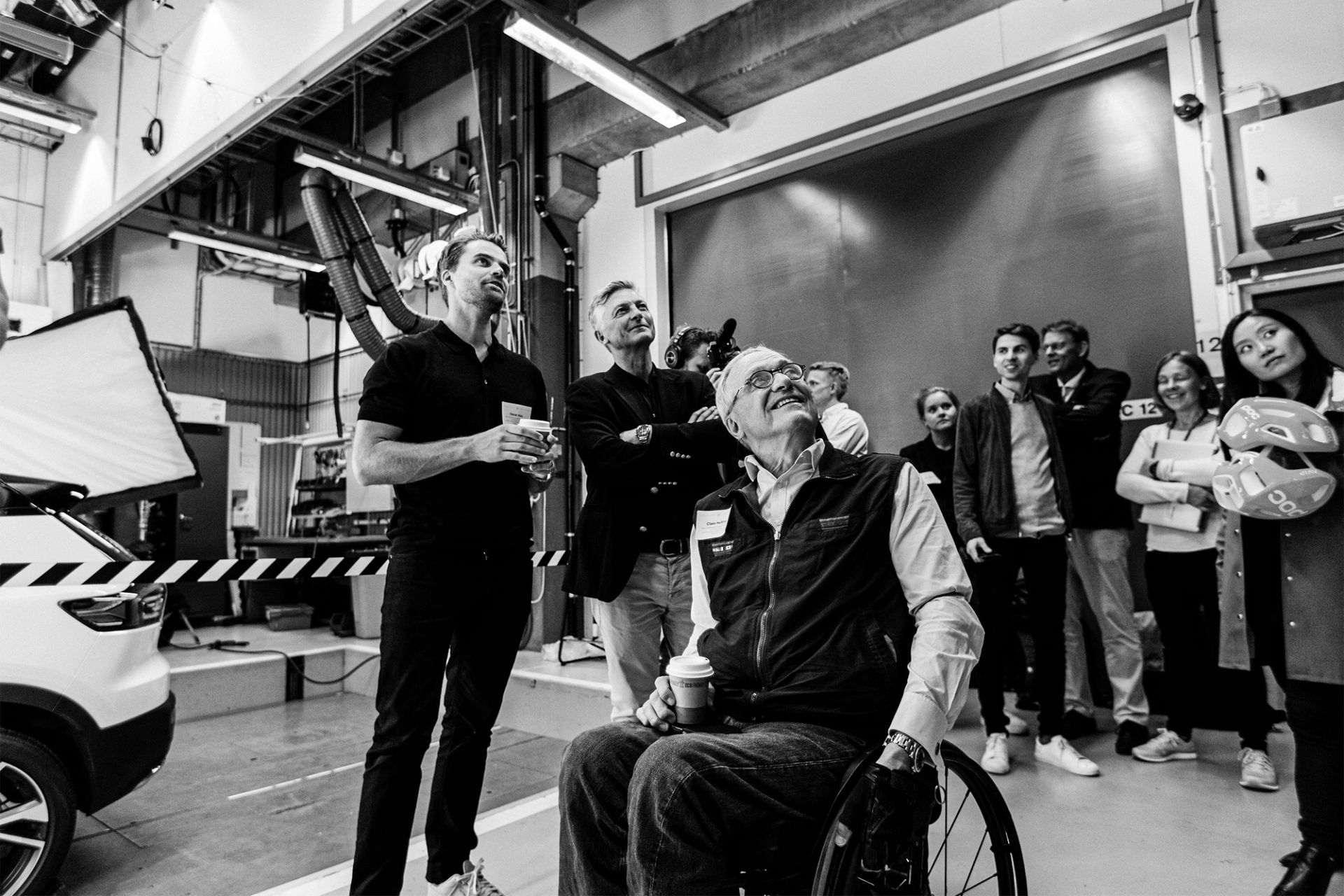
POC Lab advisory board – Claes Hultling
“A broken leg is a broken leg, but a broken soul does not heal in the same way. You cannot put a broken soul in a cast.” Dr Claes Hultling, a world leader in the treatment of Spinal Cord Injury (SCI), a tetraplegic who suffered life-changing injuries in a diving accident 35 years ago, and a member of the POC Lab, speaks in direct terms that do much to express his fighting spirit.
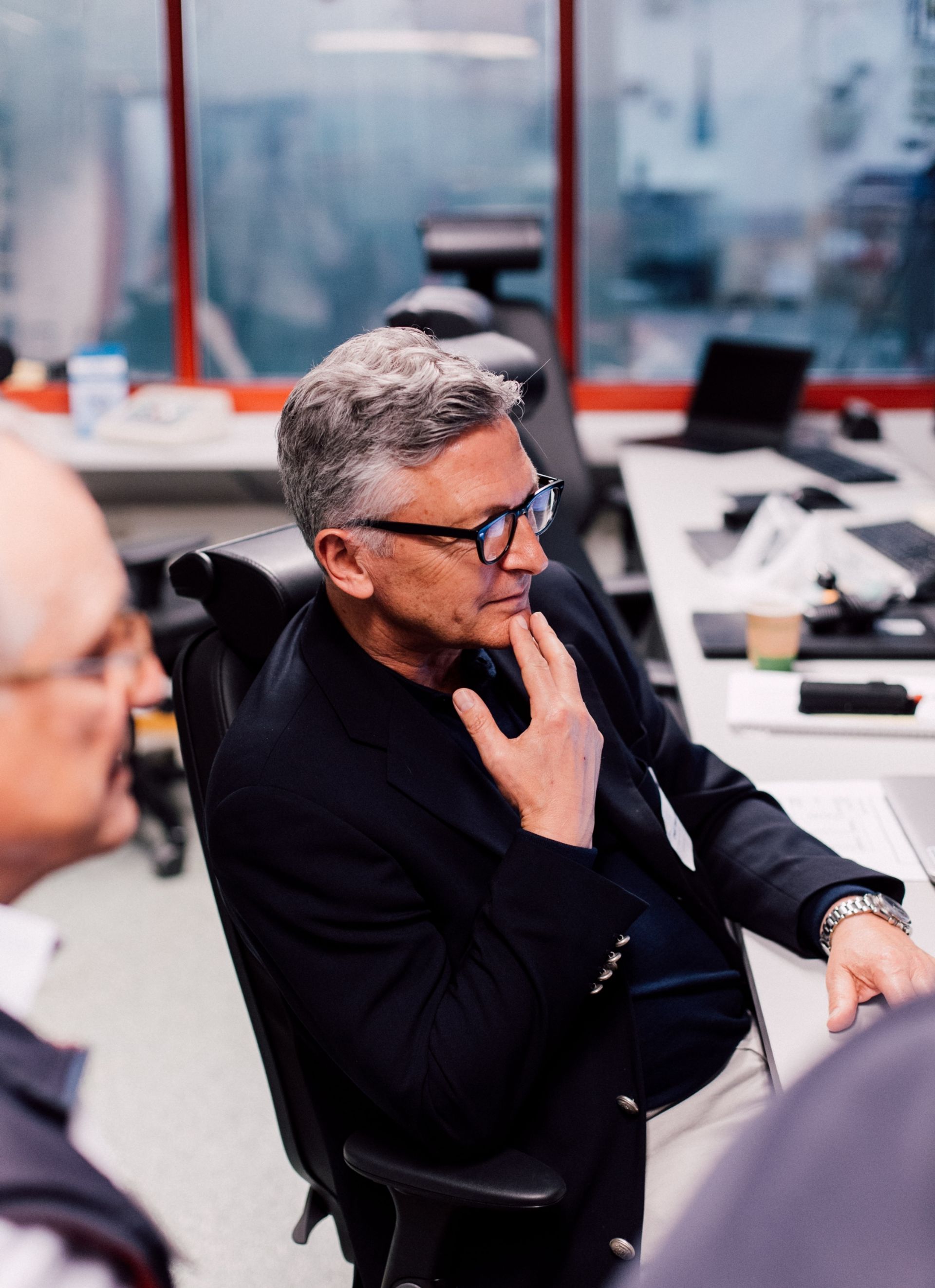
POC Lab advisory board – Per Hamid Ghatan
Per Hamid Ghatan MD, PhD embodies the scientific credentials of the POC Lab. A leading expert in head trauma and brain injury, whose tireless efforts for his patients led to a law in Sweden that makes helmet use compulsory for cyclists aged 15 and under, he has worked closely with a host of companies driven by innovation. He regards POC as the gold standard.